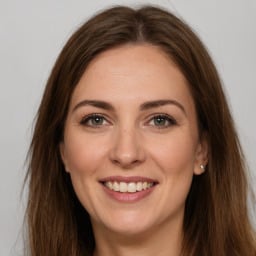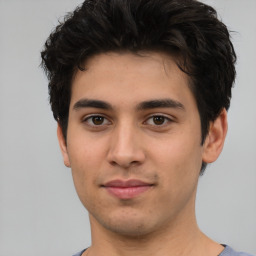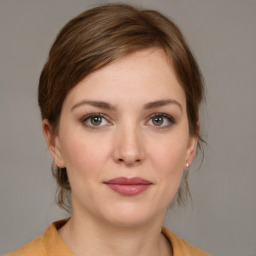Introduction
Organisational behaviour refers to the study of a way in which people interact and behave with one another at workplace. It involves assessment of how the behaviour and performance of an employee get affected when working within a team (Chiboiwa, Chipunza and Samuel, 2011). Dr Martin is an footwear manufacturing company which is headquartered in UK. Current report is about the decision taken by Dr Martin to relocate its office from Northampton to London and challenges faced by them while executing this action. This report elaborates about the influence of culture, politics and power on employees behaviour along with various motivational theories that can be used to enhance productivity of employees. It also describe about characteristics that make an effective over ineffective team and path goal theory to improve employees behaviour.
TASK 1
P1. Influence of Culture, Politics and Power on the Behaviour of Employees
Every organisation has a different culture and norm which may or may not as per the expectation of employees. Culture plays an essential role in the performance of an employees as favourable cultural environment motivate them to work as per the required standard. If employees needs are fulfilled by the organisation they will be happy and perform better. This will be beneficial for the company which contribute toward its growth and success. Culture refers to rituals, values, beliefs, norms and symbols which are different in each company. It put both negative and positive impact on workers. Their performance, morale, sales, profits and many other things get affected as culture of a company is powerful. In case of Dr Martin it is very essential for its manager to develop a favourable and friendly culture that support employees in performing their job effectively (Dartey-Baah and Amoako, 2011). Further it also support company in keeping their employees satisfied and attaining their objectives behind relocation. Role of culture can be better understood using Handy's topology model that is explained below:
Handy's Typology
Power Culture:- A company with a power culture gave power to a few persons whose impact is positive and favourable in an organisation (Models of Organisational Culture - Handy, 2015). Employees who are working within organisation are judged by their performance and how they are doing things. It help Dr. Martin in creating an environment of disciple and coordination as employees will work over the instruction from single authority.
Role Culture:- In role culture company is based on rules. In this employees are given position and responsibilities according to their qualification and interests. By developing such culture Dr Martin will be able to manage their workers to do their best and perform challenging tasks.
Task Culture:- In Task culture groups are formed to attain the goals and to solve the problems. In these workers with the same qualification and interests are formed into the team. Under such culture Dr Martin will be able to form teams as per their skills and ability that support accomplishing goals effectively and on time (Farndale, Hope-Hailey and Kelliher, 2011). This help in enhancing the productivity of employees as they work as per their capabilities.
Person Culture:- Person culture refers to the culture where the employees feel that they are important and holds value for the organisation. By developing such culture Dr Martin will be able to keep its employees motivated and satisfied with their job which put more effort to support company in achieving their goals.
Organisation Power
Power refers to the sources or ways through which employees are controlled in the organisation. In a company a manager should take appropriate use of power and should perform action according to the position. Administrator's decisions must be in the favour of the organisation. Positive use of power will support managers of Dr Martin in achieving their targets by motivating its employees. The effective use of power within organisation can be better understood using following French and Raven's power type model:
Coercive Power:- In this power employees are forced to do work against their wishes. This type of power frustrate the employees and leads to problems. This method of using power is not appropriate for Dr Martin as it leads to create dissatisfaction and demotivation among employees. As a result of which it affects their performance and also minimizes their productivity which affects the position of company at marketplace.
Reward Power:- Reward power refers to the appreciation,bonuses and incentives that encourages people in effective manner. Using this power will help Dr Martin in motivating and encouraging their employees to put more effort toward their performance in order to achieve appreciation (Francis, O’Connor and Curran, 2012).
Expert Power: It refers to the power which is given to a particular individual due to certain skills and ability they have. Managers of Dr Martin can exercise this power by delegating some authorities to its employees who have capability to deal with contingencies and able to make proper judgement to bring out positive result from work performed by them. This support in motivating employees and also help in executing task effectively by taking quick decision at the time of contingencies.
Legitimate Power: Legitimate power is said to be title power. This type of power is granted according to the title or position of the person like CEO, Executive, Owner, etc. Legitimate power helps the higher authority such as CEO of Dr Martin to control and manage their employees within an organisation.
Referent Power: Persons who have referent power are appreciated by others and have a big influence. They have qualities like good looks, charm and are liked by their attitude. In this power there is heavy responsibility (Gold and et. al., 2013). Existence of this power helps the manager of Dr Martin in developing confidence among employees while performing work and achieve loyalty toward company.
Chanlat's Characteristic Related to Organisation's Politics
Politics and power plays a vital role in organisation. Its impact will be both negative and positive in the organisation. In a positive manner it encourages the employees, negatively it can create unfavourable environment and also leads to demotivation of employees. Chanlat describe political behaviour in three categories they are decisional, structural and personal. Decisional characteristics are applied by managers during hiring process where they consider only the skills and quality that a person have as it support them in achieving desired result in near future. Personal characteristics is used by an manager when they influence employees personal to perform certain actions by using their power and strategies. The third characteristic is structural which state that managers of Dr Martin should perform an action in a planned orc structural manner.
TASK 2
P2. Motivational Theories for Achieving Organisational Goals
Motivation is an inner process which encourages an individual to achieve organisational goals and objectives. A person's unsatisfied needs stimulates to work more to achieve desired goals or to satisfy their needs (Kasemsap, 2016)In current scenario of Dr Martin it is very essential for the managers of Dr Martin to keep their employees motivated for making them more productive and adoptable to changes that are made in culture and other business processes.
Content Theory
It refers to the theory which describe about various ffactors that are responsible for changes in need and want of human over certain period of time. It supports managers of Dr Martin to evaluate factors that may affect the working behaviour of employees. Maslow's hierarchy of needs theory is covered under content theory which is described here.
Maslow' Theory:- According to Maslow theory an individual does not think to fulfil higher needs until the basic needs are not satisfied (Kaur, 2013). Under this theory Maslow describes and arrange the needs of human being as per their priority. Following are the needs describe under this model:
Physiological Needs:- These are basic needs which includes shelter, food and cloth. Dr Martin should provide proper compensation to employees so they can fulfil their basic needs. This help in keeping them satisfied with their job and being motivated toward their work(The Hierarchy of Human Needs: Maslow’s Model of Motivation, 2018.).
Safety Needs:- Safety needs includes job security,threats,freedom and safe working environment. In context to Dr Martin the manager must make efforts to feel employees secure at the workplace by providing training to use particular tools or machinery that can harm them.
Social Needs:- This is the third level of Maslow's needs which includes affection, trust, friendship, acceptance, giving and receiving love. Manager of Dr Martin must kept in mind that there should be peaceful, cooperative and supportive environment in the organisation to make employees feel better to work at this place.
Esteem Needs:-Esteem needs are of two types- self-esteem and esteem from others. Under this need, it is very essential for manager of Dr Martin to appreciate the work of its employees and provide required reward in order to keep them motivated.
Self-actualization Needs:- Self-actualisation refers to the desire to grow and to realize individual's full potential. Manager of Dr Martin must try to assess the expectation of employees toward their job and try to provide them opportunity to accomplish those in order to keep them motivated (LA, 2013).
Process Theory
This theory focuses on evaluating the individual need that may affect the performance of employees at the workplace. Self- Efficacy theory is covered under process theory which is described under:
Self-Efficacy Theory:- According to this theory, individuals believe that they are capable and have ability to perform a task. In context to Dr Martin, the manager must see that there should be effective utilisation of employee's ability.
Ways to Motivate Individuals:- Employees can be motivated through several ways. The environment should be friendly where employees are working. The employees must given rewards and appreciation for their good performance (Laforet, 2011). Proper communication is also one of the major point in the motivation of employees. Employee's creativity should be encouraged at work place. In Dr Martin the manager should consider all these factors to motivate employees so their performance can be improved.
TASK 3
P3 State what makes a team more effective as opposed to an ineffective team
A Team is a formation of individuals or group members to achieve their desired goal. Evaluation of strength and weakness is analysed through their skills. Power of co-ordination helps the members to maximize their ability. In context of Dr Marten's effective team is a team which has clear objectives of goals ,good communication and interaction among members,leadership qualities,team orientation and mutual understanding. Every team in the organisation has an objective to set standards for their subordinate to motivate through their personal strength (Michailova and Sidorova, 2011). Mutual co-operation between the authority and the members is must to attain their objectives in a period of time.
|
Basis |
Effective Team |
Ineffective Team |
|
Working Environment |
There is a good and friendly environment in the team which helps them to utilise the resources. |
No proper environment is there which cause members to enhance their skills. |
|
Leadership qualities |
In order to make a good team good leader is there to guide his fellow members to achieve their objectives |
No leader takes responsibility to guide his team in the intense situation |
|
Point of views |
Every member of the team can give their opinion, perspective |
No co-ordination between among the members. |
|
Good listener |
In this team, all members listen each other view. |
No listening qualities is there between the employees |
|
Decision making |
Every team leader gives right to each members for quick decision making (Owoyemi and Ekwoaba, 2014). |
No decision-making ability is there between the employees |
|
Conflicts |
There are no conflicts between leaders and the members. |
Whereas, their is conflict resolution between them which makes atmosphere intense. |
Dr marten's wants to make a effective team which has the following characteristics.
Communication Skill: In order to make effective team there should be good e effective communication between the company and the members so that working environment can be formed (Suma and Lesha, 2013). In context to Dr marten's company is relocating business in London so good communication is required to maintain their standard with the authority.
Leadership Qualities: Leader has to be there for the members working in the company to evaluate their set of performance. There should be a good leader in Dr. marten's who step up and motivate their members to perform well and set standardized goal for the team.
Tuckman Model
Dr Bruce tuckman established the Forming-Storming-Norming-Performing-Adjourning model in 1965. According to this theory it is explained that maturity and decision making ability has to be there among the team. Style of leadership have to be change in order to produce good result in the company. Dr Marten's uses tuckman model for the effective framework of the team.
There are four stages in this model:
- Forming: It means Organising of new team and develop the new ideas between the members. Dr marten's should assign the role and responsibilities to each member ,to set a particular goal and knows their expectations regarding the future.
- Storming: According to this theory when team forms disputes between the managers and the team members is clearly displayed. Dr marten's should build understanding among the members,opportunities should be given to the members to focus on their goals.
- Norming: Team discuss their process and develops ideas for the members. Small teams are created within groups which engage in fun and social activities (Wong, Ormiston and Tetlock, 2011). In context of Dr marten's there should be given equal opportunities to the members to make their contribution towards the works.
- Performing: In this theory all the members have the opportunity to perform their task, roles and responsibility given to them by the authority. Team requires projects and tasks from the leader to achieve their goal. Every members in the Dr marten's should know how to perform their task in an efficient manner to show their skill.
- Adjourning: It means split of the group after performing the task. Every members move on to their another field. Team of Dr marten's should know how to manage the members in the particular situation and how to bring out the best from the employees.
TASK 4
P4. Philosophies and Theories of Organisational Behaviour
As Dr. Martin is relocating its central office from Northampton to London by opening the two-storey flagship store. So for shifting and performing operations effectively it is very essential for the manager of DR. Martin to adopt an appropriate leadership style that best suited to environment. As adopting an effective leadership style will help the manager in keeping their employees dedicated toward work and be able to adjust within new environment (Wood and et. al., 2016). Path goal theory given by House Mitchell in 1974 which focuses toward specifying the leader's style or behaviour that best suit to the employees and environment in which they work. This help in providing them a path through which organisational goals can be achieve. This theory can be used by the managers of Dr. Martin as it focuses toward motivating, empowering and satisfying the employees so that they can support company in enhance its productivity and will be able to relocate business effectively.
Path goal theory is based on Vroom's expectancy theory which state that an individual perform some action as per their expectation to the outcome of that activity. This theory is consists of process in which leaders select certain behaviours that will be appropriate for employees' need and working environment. This help leaders to better guide and motivate their employees for day to day operations by keeping fulfilment of need as the factor of motivation to their workers. This will further support in the growth and success of company.
Classification of Path-Goal Theory
Employee Characteristic:- This step state that a leader must identify and understand the skills, ability and characteristics of their employees. Because it will help them in identifying the best way to motivate their employees. In current scenario Dr Martin is relocating its office and want to ensure that its employees feel comfortable as well as being adoptable to new environment. So in order keep its employees motivated it is very essential for managers of Dr Martin must understand the need of its subordinates (Suma and Lesha, 2013). This help them in formulating strategy to motivate its employees by fulfilling their expectation.
Task and Environmental Characteristics:- Next step define in this theory is evaluation of characteristic that a environment have. This stage suggest that managers must analyses the working environment of employees in order to determine the issues faced by workers at workplace. Managers of Dr. martin are required to analyse the internal environment of company in which employees work for determining the issues that they are facing and which may affect their performance. As this will help them in formulating the motivational strategies as well as training programs that support employees in performing their task effectively. Further it also help management in developing an environment that foster employees to work harder. Apart from this it is also essential for leaders of Dr Martin must identify the nature of task and assign to the individual who have the ability to perform that task properly. Following are some characteristic of task that must be consider by managers before assigning task:
- Design of Task:- In order to achieve the desire result it is essential for managers of Dr. Martin that they must describe the roles & responsibilities perform by each person. This help in minimizing the confusion and chance of error as well as also ensure that employees perform task in required direction.
- Formal Authority System:- It is very essential for the managers of Dr Martin that they must assign task along with certain authority to its employees so that they must be able to take action at the time of some uncertainty. This will also support in building up trust among employees which motivate them to move further.
- Work Group:- Team work and coordination is a key to success therefore leaders of Dr. Martin should try to motivate its employees to work as a unit. As this support in accomplishment of task in more effective and on timely manner.
Leadership Style:- Leaders are the person who have the ability to influence its follower to perform operations in a particular direction. Under this stage path goal theory suggest that there are various type of leadership style that a manager can follow in order to motivate their employees and achieve desire result (Suma and Lesha, 2013). Following are the types of leadership:
- Directive:- Under this style leaders guide their follower about what they have to do and in which manner to accomplish the desire result. This style will be effective at the time when employees find it harder to perform a task.
- Supportive:- In this leadership style, a leader always support its follower in every action perform by them and focuses on maintaining a healthy relation with them. Supportive leadership style will be more appropriate in situation where task and relationship is psychologically challenging.
- Participative:- Under this leadership style leaders always involve its followers and encourage to participate in decision making process by inviting their view over specific situation before taking any action.
- Achievement:- Leaders under this style focuses on setting up challenging goals over their follower and expect them to achieve them which help in enhancing their skills and ability.
These all are stages of path goal theory which support mangers of Dr. Martin to keep their employees motivated and aligned with organisational goals (Wong, Ormiston and Tetlock, 2011). As in current scenario, for making its employees more productive Dr Martin has conducted six workshops for them. This help company in introducing their employees with required knowledge, capabilities and skills. Apart from this in order to improve the organisational work culture it is very essential for managers of Dr Martin to adopt an appropriate leadership style that encourage employees to work harder.
Conclusion
From the above report it can be concluded that organisational behaviour plays a crucial role within the growth and development of company as it support company to enhance the skills of their employees. Therefore it is very essential for a company to maintain an effective culture at workplace that can be adopted or acceptable by its employees as it support in making them more productive. This will further support company to achieve success and competitive advantage at marketplace
References
Books and Journals
- Chiboiwa, M. W., Chipunza, C. and Samuel, M. O., 2011. Evaluation of job satisfaction and organisational citizenship behaviour: Case study of selected organisations in Zimbabwe. African Journal of Business Management. 5(7). p.2910.
- Dartey-Baah, K. and Amoako, G. K., 2011. Application of Frederick Herzberg's Two-Factor theory in assessing and understanding employee motivation at work: a Ghanaian Perspective. European Journal of Business and Management. 3(9). pp.1-8.
- Farndale, E., Hope-Hailey, V. and Kelliher, C., 2011. High commitment performance management: The roles of justice and trust. Personnel Review. 40(1). pp.5-23.
- Francis, J. J., O’Connor, D. and Curran, J., 2012. Theories of behaviour change synthesised into a set of theoretical groupings: introducing a thematic series on the theoretical domains framework. Implementation Science. 7(1). p.35.
- Gold, J. and et. al., 2013. Human resource development: Theory and practice. Palgrave Macmillan.
- Kasemsap, K., 2016. The role of knowledge sharing on organisational innovation: An integrated framework. In Business intelligence: Concepts, methodologies, tools, and applications (pp. 406-429). IGI Global.
- Kaur, A., 2013. Maslow’s need hierarchy theory: Applications and criticisms. Global Journal of Management and Business Studies. 3(10). pp.1061-1064.
- LA, B., 2013. Will prescriptions for cultural change improve the NHS?. BMJ. 346. p.19.
- Laforet, S., 2011. A framework of organisational innovation and outcomes in SMEs. International Journal of Entrepreneurial Behavior & Research. 17(4). pp.380-408.
- Michailova, S. and Sidorova, E., 2011. From group-based work to organisational learning: the role of communication forms and knowledge sharing. Knowledge Management Research & Practice. 9(1). pp.73-83.
- Owoyemi, O. and Ekwoaba, J. O., 2014. Organisational Culture: A Tool for Management to Control, Motivate and Enhance Employees’ Performance.
- Suma, S. and Lesha, J., 2013. Job satisfaction and organizational commitment: The case of Shkodra municipality. European Scientific Journal, ESJ. 9(17).
- Wong, E. M., Ormiston, M. E. and Tetlock, P. E., 2011. The effects of top management team integrative complexity and decentralized decision making on corporate social performance. Academy of Management Journal. 54(6). pp.1207-1228.
- Wood, J. M. And et. al., 2016. Organisational behaviour: Core concepts and applications. John Wiley & Sons Australia, Ltd.



 Company
Company


















